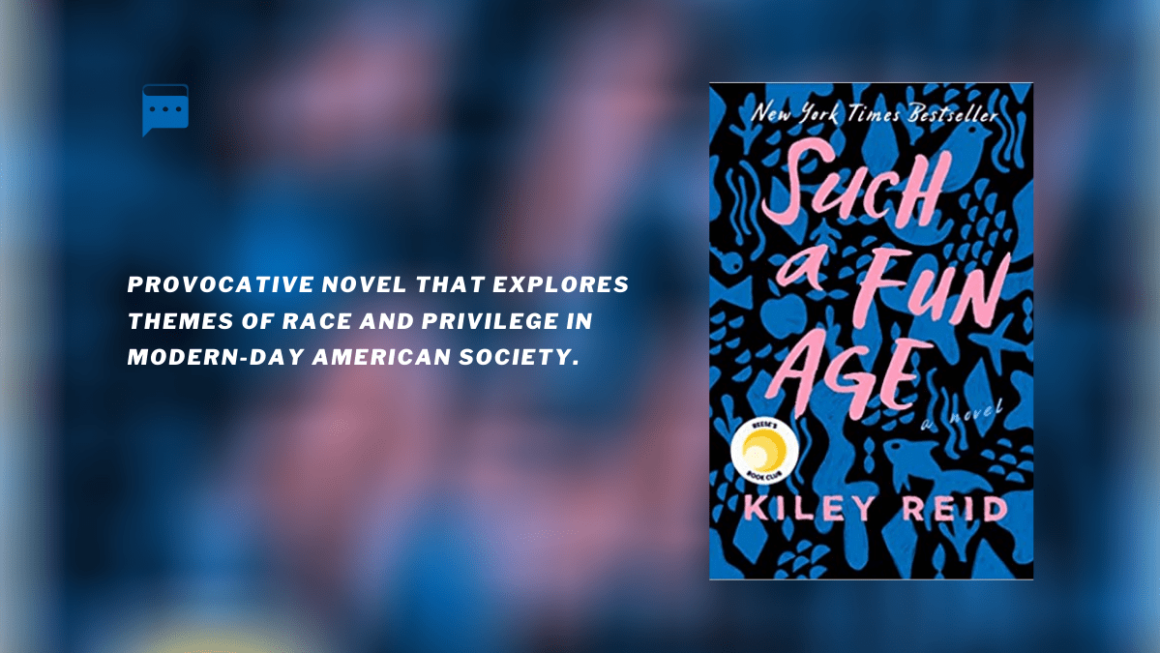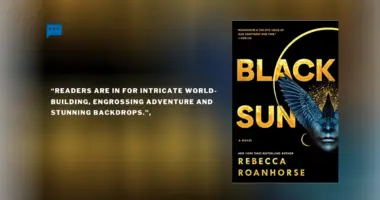- The fiery tension of the situation is only able to be diffused once Emira calls Briar’s father to explain what has hap…
By – Kiley Reid
Such a Fun Age is a story filled with commentary on the white savior complex, how two different lives, one of mid to upper class privilege and one more working class, intersect, how politically correct wokeness can hamper interactions and how white people and African-Americans communicate, and the ultimate different ways racism can manifest itself even with seemingly good intentions that become hobbled and confused.
Emira Tucker is a young African-American woman who works for Alix Chamberlain, a white, privileged social media influencer and feminist blogger, and her family as a babysitter. Emira is 25, just about to age out of being allowed on her parent’s health insurance, and still unsure where her true passions lie and who she wants to be, as she watches her friends around her seemingly seamlessly fit into their adult lives. I thought Emira’s troubles with figuring everything out was well-captured and made me feel less alone with my own experiences with learning how to adult and adjust in what can be an already complicated world fragmented by forces of divisive, isolating modernity and complicated technology.
One night amongst Emira’s continuing journey of trying to find herself, she is called in by the Chamberlain household to babysit last minute so she comes in her clothes from a night out on the town and ready to take young Briar out to Market Depot, a local supermarket for upscale residents in Pennsylvania. In the supermarket after an impromptu dance party with her friend and Briar, Emira finds herself aggressively confronted by a security guard who racially profiles Emira and accuses her of kidnapping Briar, which is all recorded by a near passerby. The fiery tension of the situation is only able to be diffused once Emira calls Briar’s father to explain what has happened.
From here, things only escalate as Emira receives pressure from the recorder of the video, Kelley, and later Alix to share the video to get justice for the wrongful way she has been treated. Alix, while going through some inner struggles herself and being forced to confront parts of own history, immerses herself in Emira’s life with full-fledged enthuse, even going so far as to secretly check her phone, and seeks to demonstrate how progressively informed and politically well-versed she is. But her efforts to prove her progressiveness, no matter if she is well-meaning in terms of the fact that she wants to be knowledgeable about people and their plights, also comes across as shamelessly self-aggrandizing, cloyingly forceful, and painfully heavy-handed.
Additionally, her aims to achieve justice for Emira and her situation also seem to come from a place where she wants to make herself feel better and elevate her to a more savvily poised place than she is. Alix is indebted to the likes of her appearance and how her way of life seems to others and she also assumes she can come in with a magic wand and fix people and what they’re going through, even when it’s unsolicited, especially someone who she sees as having less or in a reverse kind of racism being African-American.
This book covered a lot of important topics that are worth thinking about and having discussions on, but the ending fell incredibly short for me, apart from all the other ways the book succeeded at satirizing troubling parts of American culture and bringing them even more to light in all the ways they can be present and impact the daily lives of white people and African-Americans, who are living the pains and dangers of being accused of crimes they didn’t commit and being viewed through a harmfully particularistic lens in that people see and presume what they want to and then run with it in tragically unsettling ways. They let their views of someone fit into their generalized narratives and allow themselves to disappear into the depths of their own echo chambers and that has to continually be discussed if it is to be addressed.



